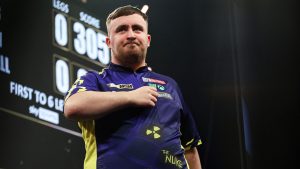Singing on streets as Sri Lanka’s leader agrees to step down

President Gotabaya Rajapaksa has Four other ministers stepped down over the weekend. Minister of Tourism and Land Harin Fernando, Minister of Labour and Foreign Employment Manusha Nanayakkara and Minister of Transport and Highways and co-spokesperson for the cabinet Bandula Gunawardena all resigned on Saturday, according to the ministers’ offices. Minister of Investment Promotion Portfolio Dhammika Perera told CNN he resigned on Sunday.The economic turmoil has plunged the Indian Ocean island nation of 22 million into a dire humanitarian crisis, leaving millions struggling to buy food, medicine and fuel.After months of largely peaceful protests, anger reached tipping point on Saturday, as more than 100,000 people massed outside Rajapaksa’s residence, calling for his resignation.Video broadcast on Sri Lankan television and on social media showed the protesters enter the President’s House — Rajapaksa’s office and residence — after breaking through security cordons. Images show demonstrators inside the whitewashed colonial-era building and hanging banners from the balcony.Later on Saturday, live video streamed by local media and seen by CNN showed Wickremesinghe’s home engulfed in flames as crowds gathered around.Neither the President nor Prime Minister were at their residences when the buildings were breached. Both had been moved to secure locations prior to the attacks, according to security officials.Political uncertaintySaturday’s drastic escalation of unrest could spell the end of the Rajapaksa family’s political dynasty, which has ruled Sri Lanka for most of the past two decades.In a video statement late on Saturday, Parliament Speaker Mahinda Yapa Abeywardena said Rajapaksa’s decision to step down “was taken to ensure a peaceful handover of power.”But how that transition of power will eventually play out is engulfed by uncertainty.If both Wickremesinghe and Rajapaksa resign, under the Sri Lankan constitution, the speaker of parliament will serve as acting president for a maximum of 30 days. Meanwhile, parliament will elect a new president within 30 days from one of its members who will hold the office for the remaining two years of the current term.The United States Senate Foreign Relations Committee Two of the journalists from the Sri Lankan TV channel Newsfirst had their cameras rolling at the time. Video aired by Newsfirst shows two journalists being pushed to the ground by police during the confrontation late Saturday. Fellow journalists who rushed to their aid were then also attacked, Newsfirst reported.Wickremesinghe, the Prime Minister, also condemned attacks on the media. “Freedom of media is paramount to democracy in Sri Lanka,” he said, asking both security forces and protesters to “act with restraint to prevent any violence and ensure the safety of the public.”Sri Lanka’s media freedom advocacy group Free Media Movement called for an investigation into the police attack on the journalists, saying “the perpetrators responsible for these brutal attacks” must be brought to justice.






